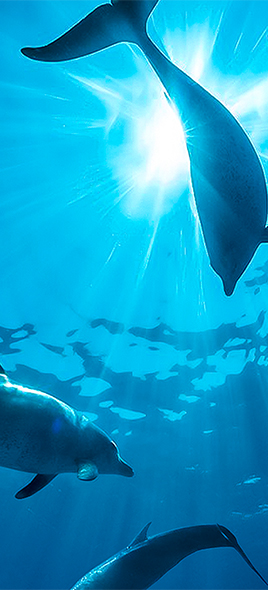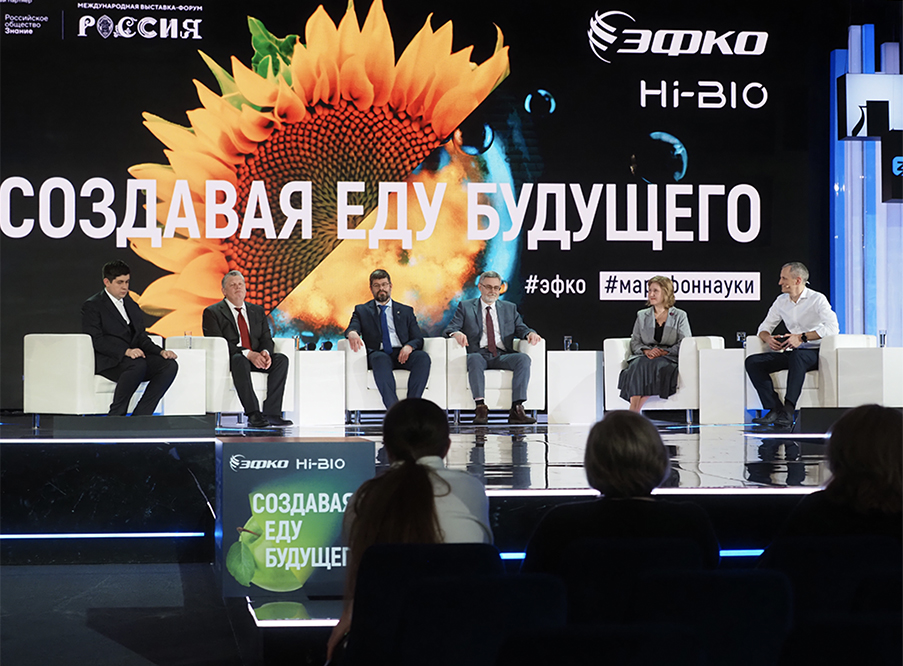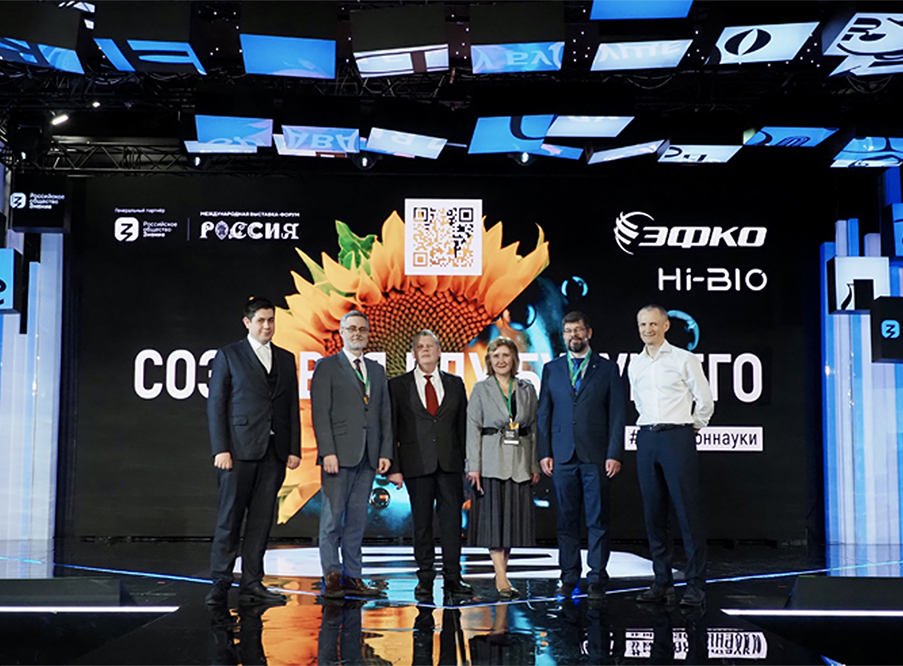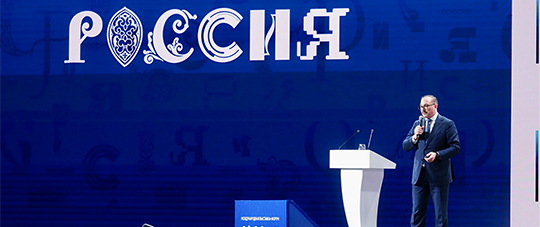Transportation, communications, medicine, entertainment industry – it had all altered beyond recognition during the century. People used to ride on go-carts and communicate via telegraph. Now they use modern phones and drive crossovers.
What about the food? Surprisingly, if today we lay the table for dinner in the manner of the 16th century, it will look just like a contemporary one. Same meat, vegetables, and bread. Food has been and continues to be one of the most conservative areas.
What is biotechnology today? What will be on our table in the future? These and many other issues were discussed by leading biologists, geneticists, chemists, and agrarians at the lecture by EFKO & Znanie Society marking the 300th anniversary of the Russian Academy of Sciences at VDNKh.
Alexey Kochetov, Doctor in Biology, Academician of the Russian Academy of Sciences, and Director of the Institute of Cytology and Genetics under the Siberian Branch of the Russian Academy of Sciences, was the speaker for selection as a science and an art at the lecture. Chemistry and the joint project with EFKO on healthy longevity was presented by Pyotr Sergiev, Doctor in Chemistry, Corresponding Member of the Russian Academy of Sciences, Director of A.N. Belozersky Research Institute of Physico-Chemical Biology under MSU.

EFKO Innovation Director
There are basic “blocks” used to build our body: fats, proteins, and carbohydrates. It would seem impossible to replace them. In recent years, however, there has been a real biotechnological revolution in science. Zero-calorie chocolate is not a fantasy, but a very likely future. Here we can also mention fats from microorganisms or algae, proteins from yeast or fungi, and many other innovations. There are more and more innovative products that may soon have a chance to be on our table and make a significant difference in our diet.”
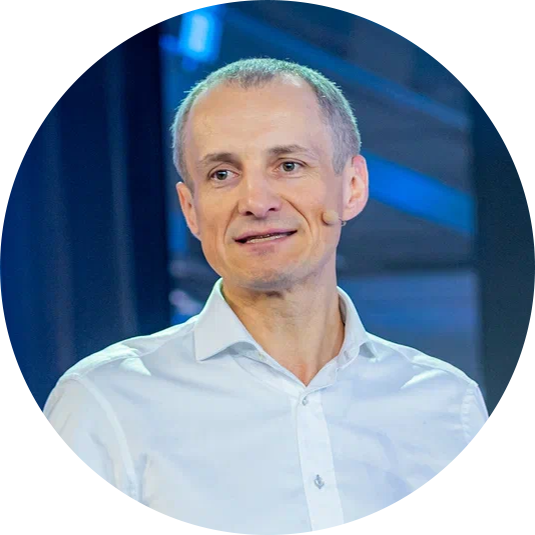
EFKO Executive Director
Over the last 20 years, science has made three large discoveries that are inspiring us to rethink the way we approach food. The first is decoding the human genome. This has opened up the possibility of new approaches to the microbiome. The second is the extent of its influence on all areas of our lives. And third, of course, is the breakthrough in biotech.”

Doctor in Agriculture, Professor of the Russian Academy of Sciences
Other issues are health and the environment. It is important to think already today about who will meet these challenges. What are they, the practical specialities of the future? If the twentieth century was the century of physics, the twenty-first is the century of biology. And even more so, biotechnology. Skolkovo experts did a large study and discovered that the top jobs of the future include city farming, i.e. everything related to growing food.”

Doctor in Biology, Head of the Laboratory of Food Chemistry under the Federal Research Center for Nutrition and Biotechnologies
Society is suspicious of innovative technologies. No one ever waits for a new product to come the way they wait for a new iPhone model. People queue up for it, chaining themselves to the store. It turns out that we cannot yet bargain with society and bring enlightenment. The Russian Federation is the first country in the world where the fitted system for assessing the safety of new products has been established. We have a significant evidence base supported by numerous studies and testing. And, of course, only safe products are allowed in the food.”
“The way to a man's heart is through his stomach,” participants quoted folk wisdom. The same goes for the food of the future. Will consumers be willing to eat innovative products? The road will be travelled by those who walk, so the answer is a firm “Yes!”, but under two conditions: such food shall be delicious and nutritious.
The guests and lecture participants managed to taste the future. The sweet protein ice cream and plant-based meat appetizers were especially appreciated. Even the strict scientists said it was “yummy.”
An equally important factor is safety, and sweet protein has successfully passed that test: “At the moment, it's a great option to reduce calories and keep the usual sweetness. The state also supports its usage. Absolutely wonderful product. Its safety has been proven,” Vladimir Bessonov shared.













